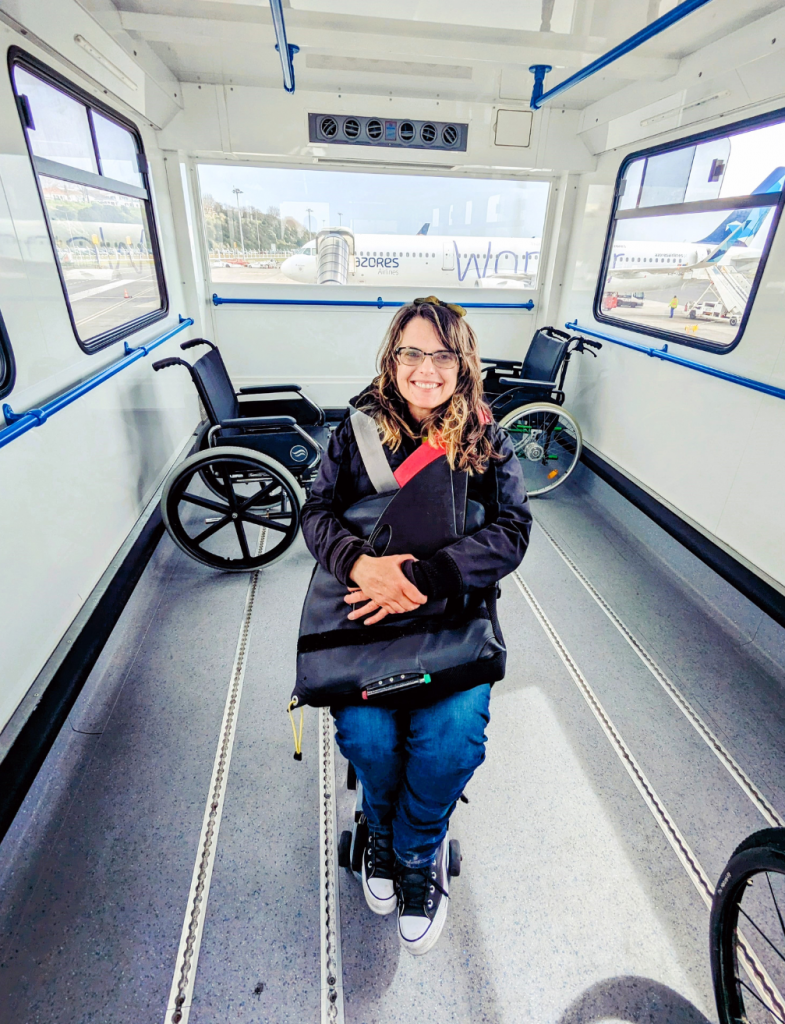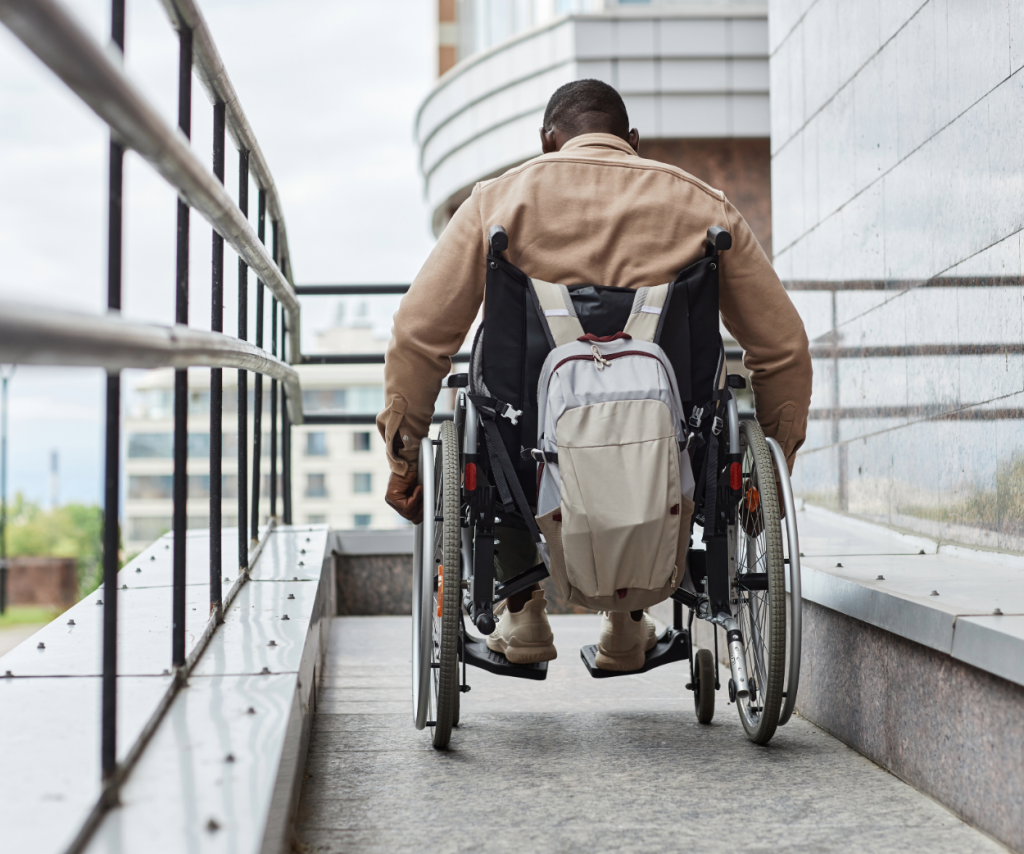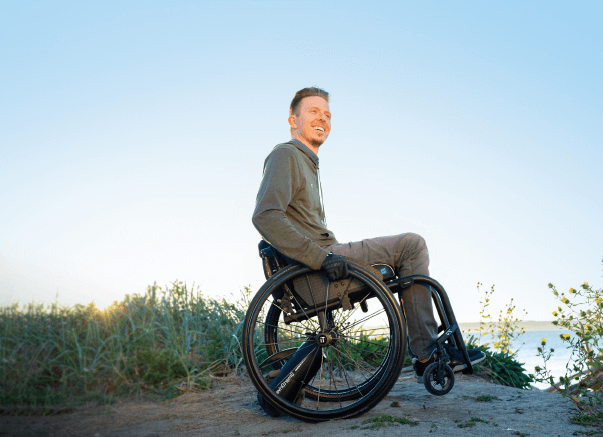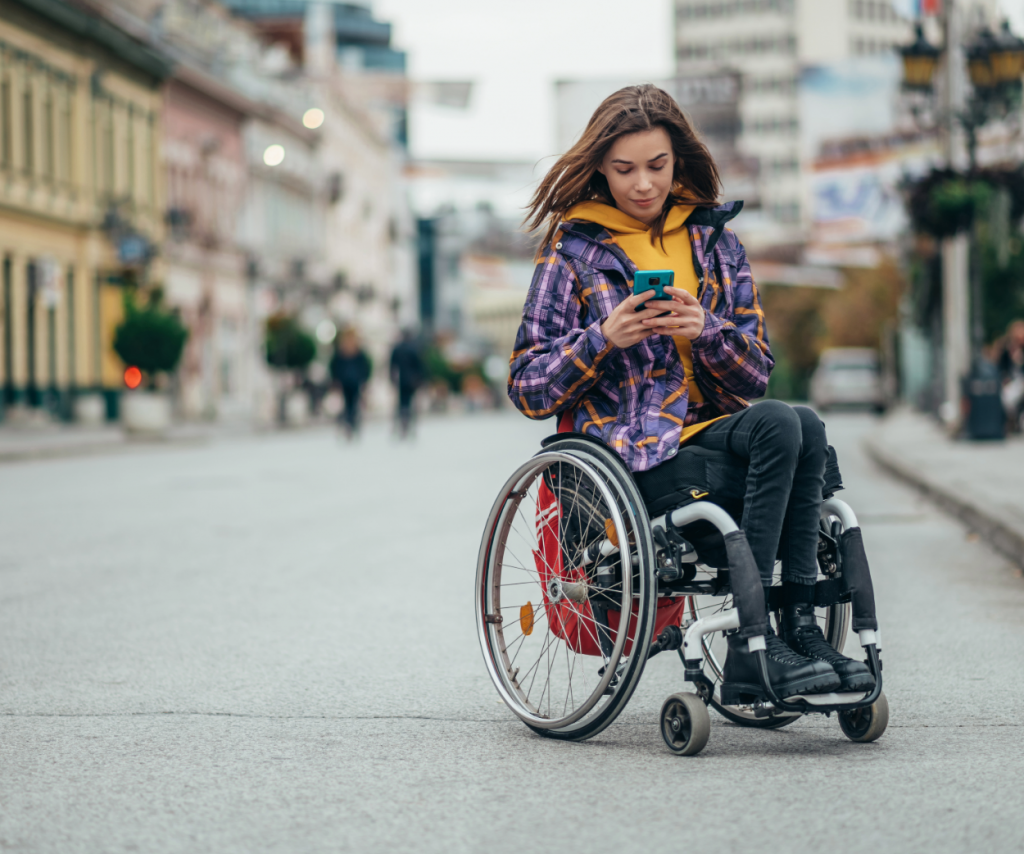What Are Your Transportation Options for Complex Rehabilitation Technology (CRT)-Related Appointments?
When your wheelchair breaks down, you just want to get it fixed as quickly as possible. A repair evaluation with your wheelchair provider at the local branch is often the fastest way to get the repair started, but getting there can be an issue.
Concerned about transportation to get you and your wheelchair to your provider’s branch for new equipment evaluations or repairs? Here are a few transit options and resources to consider when needing a ride:

Paratransit
Paratransit services are designed specifically for people who cannot use regular public transit systems, such as individuals with disabilities or senior adults. Generally, paratransit offers door-to-door service, flexible routes and scheduling with accessible vehicles designed to accommodate mobility devices. Examples include Access-A-Ride in New York City or MetroAccess in Washington, D.C. Research your local transit system to see what paratransit options may be available in your area. You may need to meet specific criteria to qualify, and reservations may be required.
Transportation Voucher Programs
These programs offer vouchers or credits that can be used to pay for rides that cover public transit, rideshare services, taxis, paratransit or other transportation options. Programs may have eligibility requirements (sometimes based on income, disability, geographic location or other factors), and voucher programs may focus on different needs, such as medical transport, employment-related travel or general mobility. Examples include RideLink in San Diego County, California, or Dial-A-Ride, which is offered in various locations.
Wheelchair-Accessible Rideshares or Taxis
In larger cities, accessible taxis might be an option to get back and forth from your local wheelchair provider for an appointment. Some rideshare services provide wheelchair-accessible vehicle options, but be aware that these services may need to be scheduled in advance.
Local Nonprofits or Charities
In some locations, nonprofits, senior centers or disability organizations provide accessible transportation for medical appointments. Churches and other faith-based organizations may also be an option in your area.

Pay It Forward: If you can travel to your wheelchair provider’s local branch for an appointment, do so. This can not only facilitate the repair process for your chair, but will help technicians who travel to in-home appointments prioritize CRT users who cannot travel, ensuring everyone gets the help they need as quickly as possible.
Remote Evaluations: First Step in the Repair Process
More and more often, the first step in the repair process is setting up a remote evaluation with a technician to determine what might be wrong. Sometimes, the problem can be determined remotely, and, if not, the remote evaluation allows the technician to better prepare for an in-person evaluation. If you’re client of NSM, contact your local branch to learn more.
ADVOCACY ALERT
If more insurance providers covered transportation for CRT-related appointments, it would help keep more CRT users moving through life with the mobility solutions they need for greater independence and healthier lives. Here’s how you can help:
Educate Yourself: To learn more about what’s included or required by your state’s Medicaid program, please reach out to your state’s Department of Health and Human Services or comparable department. Find your state’s department here. If you’re covered by a private insurance provider or Medicare, reach out to your provider for more information on what types of transportation may or may not be covered under your plan.
Share Your Story: Reach out to your state’s health and human services department and elected officials at both the state and federal level and explain how their accessible transportation policies affect you. Find your elected officials.
Make Your Voice Heard: Contact your insurance provider or Medicaid advisory groups to reinforce the importance of accessible transportation for CRT services. Call the Centers for Medicare and Medicaid Services (CMS) directly at 1-800-633-4227.
Engage with advocacy groups and advisory boards. Advocacy organizations such as the National Organization for Assistive and Rehab Technology (NCART), the ITEM Coalition and nonprofits or advocacy groups around specific diagnoses, like the Muscular Dystrophy Association (MDA) or United Spinal Association, can all be helpful in guiding you as you advocate for change.
More Stories
Related Articles
5 Things to Know as You Start the New CRT Equipment Process
When it’s time to get new complex rehabilitation technology (CRT) equipment, the process can feel overwhelming. Even if you’ve been through the experience before, it’s…
National Seating & Mobility Takes the Hassle Out of Managing Medical Supplies
We work with your insurance, healthcare providers and top manufacturers to keep your supplies coming — seamlessly. For caregivers and those who rely on home…
Did You Know: Temporary Wheelchair Replacement Coverage
Did You Know: Most commercial insurance carriers don’t cover loaner equipment for CRT users? It’s common to expect a loaner or rental car coverage when…


